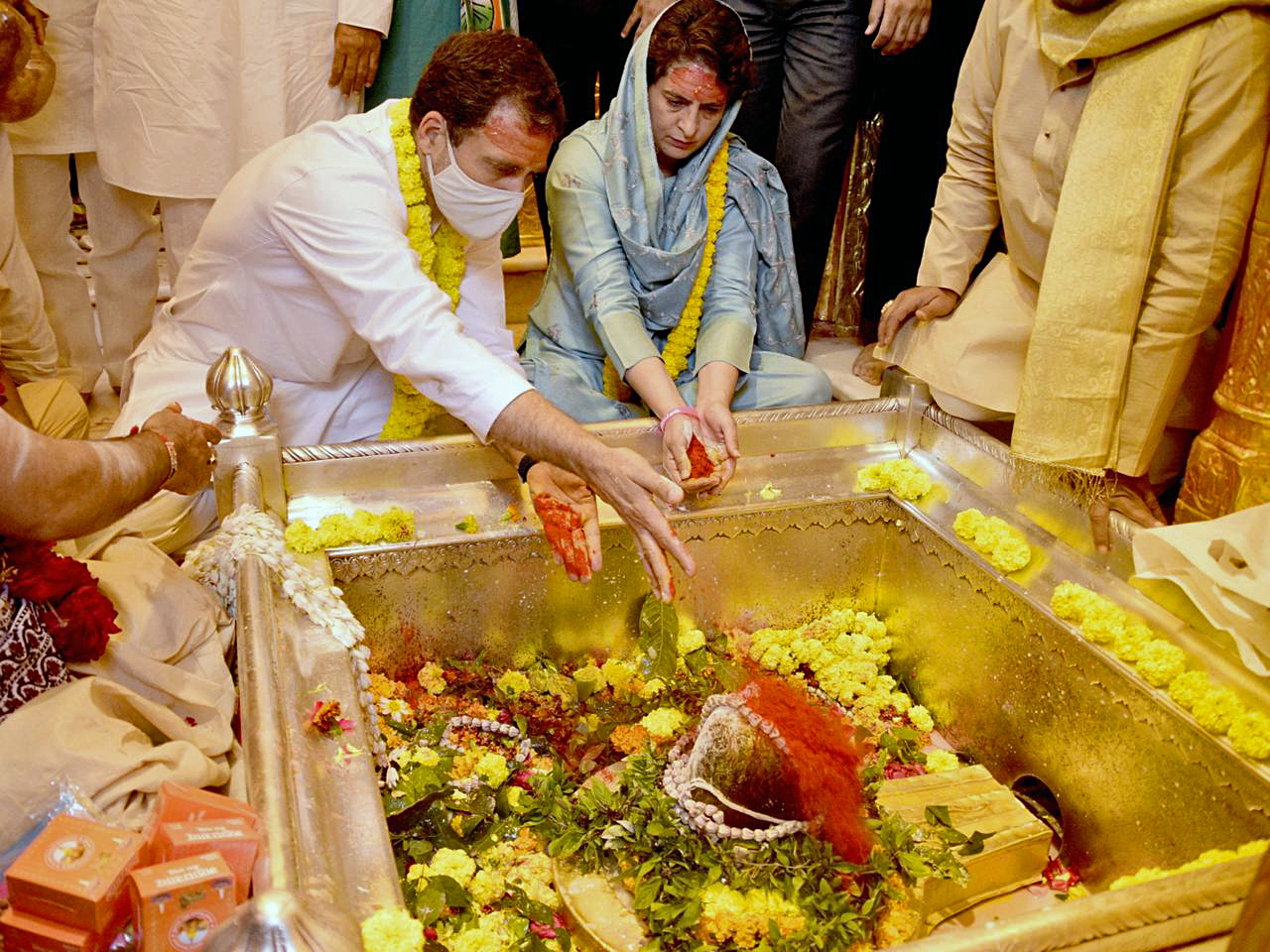Rahul and Priyanka are arduously working to attain PM Modi’s goal of a Congress-mukt Bharat.
That every political party in India, with the exceptions of the Bharatiya Janata Party and communist parties, has become a family enterprise is a disturbing development. But even more disturbing is the fact that the leaders of all such parties have accepted dynastic succession as a fait accompli, indeed a fact of life. The most conspicuous example of politicians’ acquiescence to family rule is the Congress.
The country’s oldest party, which has an impressive legacy, can boast of some very experienced and able leaders. Some even question the high command. G-23, the luminaries who dared to challenge the family, includes former Chief Ministers: Bhupinder Singh Hooda (Haryana), Rajinder Kaur Bhattal (Punjab), Marpadi Veerappa Moily (Karnataka), Prithviraj Chavan (Maharashtra), and Ghulam Nabi Azad (Jammu and Kashmir).
Besides, there are former Union ministers Kapil Sibal, Manish Tewari, Anand Sharma, P.J. Kurian, Ajay Singh, Renuka Chaudhary, Milind Deora, and Shashi Tharoor.
But the “rebellion” was feeble; it lacked the cutting edge; it was confined to writing letters, posting tweets, and making lame statements. There is no real challenge to the dynasty, which seems determined to bury the GOP.
Complete decimation of the Congress is one of the three big takeaways from the five Assembly election results; the other two are the undiminished popularity of Prime Minister Narendra Modi and the rise of the Aam Aadmi Party in Punjab. It seems that, of all people, Rahul Gandhi and Priyanka Gandhi Vadra are arduously working to attain PM Modi’s goal of a Congress-mukt Bharat.
Consider the siblings’ actions in Punjab. Not long ago, Amarinder Singh was entrenched in Punjab as CM. The farmers’ stir had broken the decades-old Akali-Bharatiya Janata Party alliance; the AAP, though a rising force, was still struggling as it was unable to find a leader that could be projected as chief ministerial candidate in Punjab. Which made Amarinder Singh’s continuation as Chief Minister almost certain.
Almost, for few could gauge the grand old party’s skill to snatch defeat from the jaws of victory. Instead of relying on Amarinder Singh—who had served as a faithful leader for decades, had never been a threat to the top GOP leadership, had never even troubled the Gandhis—the leadership decided to bet on the cricketer-turned-commentator-turned-TV star-turned-politician Navjot Singh Sidhu.
As Amarinder has repeated many times, Sidhu has always been “unstable.” He abandoned the national team during the 1996 tour of England because he thought the skipper Mohammad Azharuddin was constantly abusing him, though it was later found that the umbrage was the result of a misunderstanding.
In his autobiography, I was There: Memoirs of a Cricket Administrator, former BCCI secretary Jaywant Lele revealed that Sidhu got upset hearing Azharuddin was swearing. “Sidhu said he was terribly upset and decided it was not tolerable! He had not come on the tour to listen to abuses from the skipper. He was upset. So he decided to leave the team quietly,” Lele wrote.
The BCCI and the nation showed remarkable tolerance for Sidhu; impetuosity on his part was forgotten; he went on to not just play for the country but also have a career in television and politics. It was his impetuosity and rashness that had caused the death of a man in a road rage case in 1988.
Evidently, Sidhu didn’t learn any lessons from these incidents. He joined the BJP, and was under the impression that the saffron party was in debt to him, that it would do everything to his bidding. When it didn’t happen, he joined the Congress, with a similar attitude: his word would be law in matters related to Punjab.
He would go to Pakistan to attend Imran Khan’s swearing-in ceremony as Prime Minister, despite his boss Amarinder (Sidhu was a minister at the time in Punjab) dissuading him to go there. Sidhu even hugged the Pakistani Army chief, drawing flak from the BJP not just for himself but also his party.
Yet, the Gandhi siblings turned a blind eye to Sidhu’s recklessness and irresponsible behaviour. In fact, they kept promoting him to undermine Amarinder. Come to think of it, the Gandhi scions favoured somebody as reckless and feckless as Sidhu over a stalwart who was the pillar of strength for the party in the state.
The results are for all to see. The GOP has been marginalized in the state where it was supposed to form government. The siblings are ensuring a Congress-mukt Bharat.
PM Modi is indeed a lucky politician. With adversaries like Rahul and Priyanka, he doesn’t need any allies. PM Modi’s luck is limitless: senior Congress leaders have become so accustomed to the dynastic leadership that, like deer in headlights, they don’t know what to do.
The author is a freelance journalist

